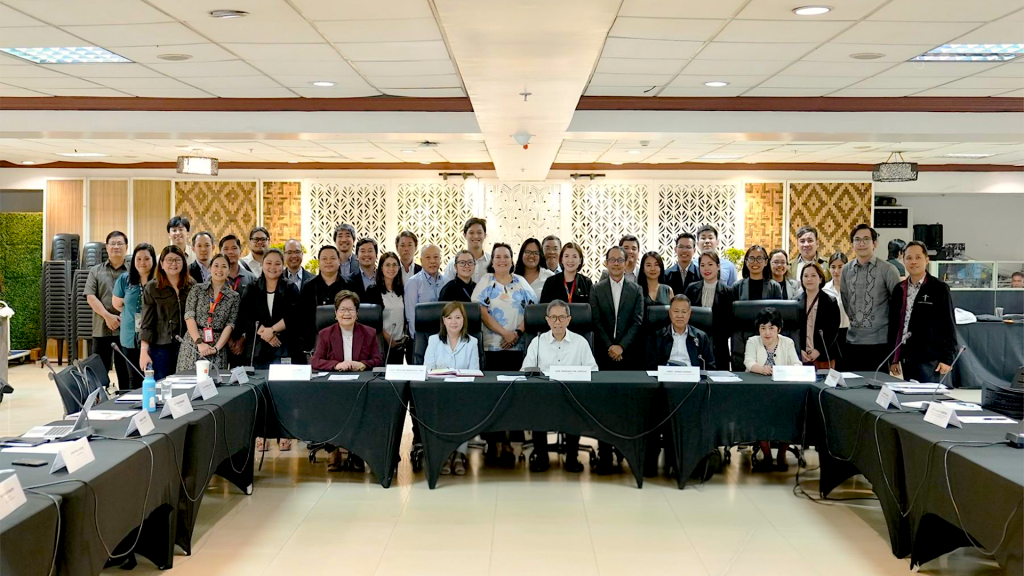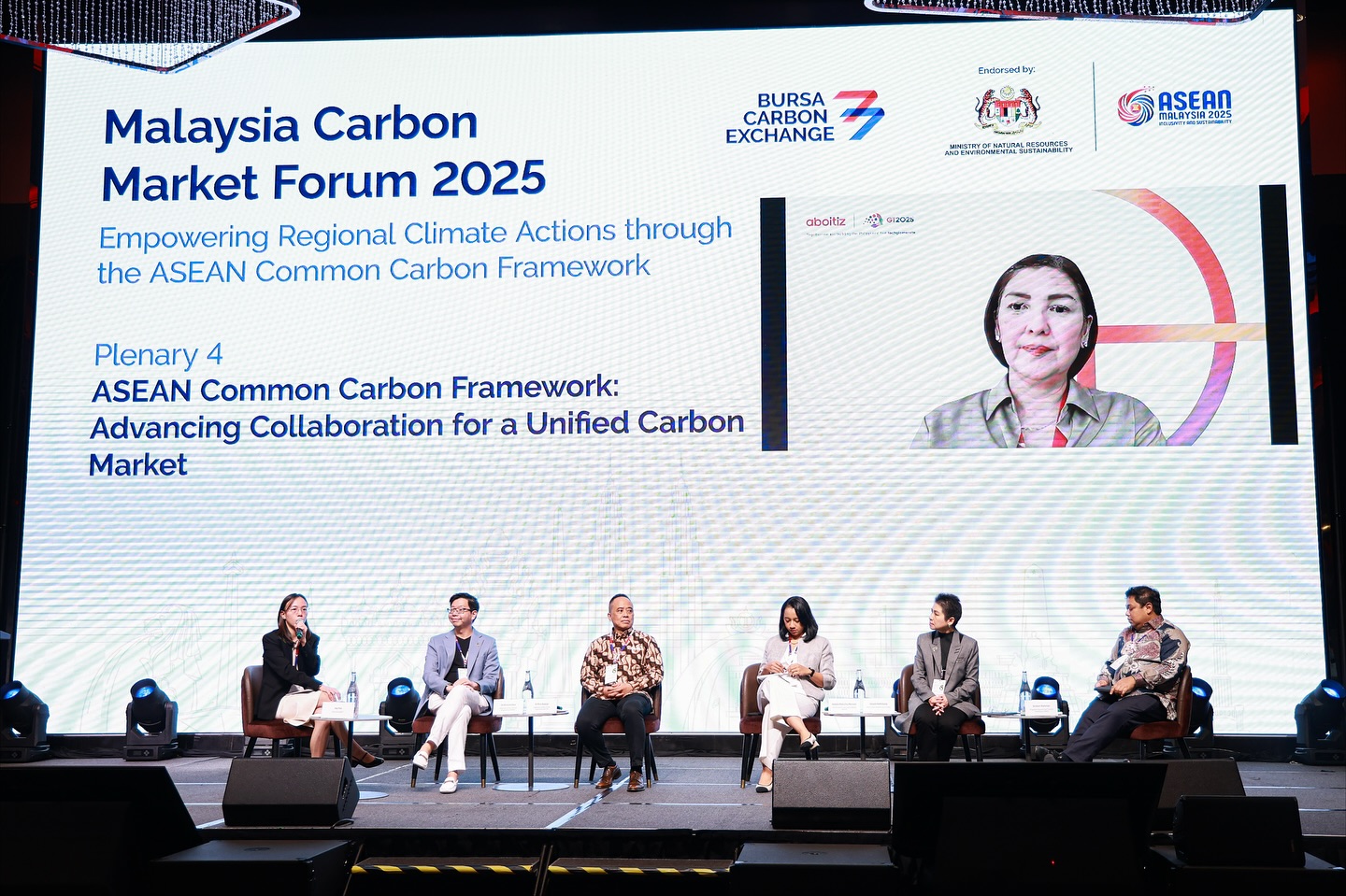Aboitiz Equity Ventures Chief Reputation and Sustainability Officer Ginggay Hontiveros-Malvar shares the Philippine perspective on building credible, inclusive carbon markets during a high-level panel discussion at the Malaysia Carbon Market Forum 2025. Photo from Bursa Malaysia
Aboitiz strengthened its role as a leading advocate for environmental stewardship and carbon market development in the region through its participation in the 3rd Malaysia Carbon Market Forum (MCMF 2025), a flagship regional event organized by the Bursa Carbon Exchange.
Ginggay Hontiveros-Malvar, AEV’s Chief Reputation and Sustainability Officer and President of Aboitiz Foundation, spoke at a high-level panel discussion on advancing collaboration for the ASEAN Common Carbon Framework (ACCF), underscoring the importance of collaboration in developing an inclusive and credible carbon market in the Philippines.
“The Philippines is well-positioned to contribute to and help shape regional carbon markets, especially in nature-based credits,” Hontiveros-Malvar said. “Through active collaboration between the public and private sectors, we are working to establish a high-integrity framework that supports both environmental goals and community development.”
She shared key policy milestones driving the development of the country’s carbon market, including a proposed executive order that would designate a lead agency for carbon market governance, and the Low-Carbon Investment Economy Bill currently pending in Congress, which aims to institutionalize a national regulatory framework for carbon trading.
Another major step forward is the forthcoming Department Administrative Order (DAO) from the Department of Environment and Natural Resources (DENR) on forest carbon projects. This draft policy is being shaped through close collaboration with the Carbon Coalition and NBS Industry Group, an alliance of Philippine companies—including the Aboitiz Group—advocating for nature-based solutions, carbon market readiness, and sustainable business practices.
“The draft DAO is an example of how government, industry, and civil society can work together to create science-based, transparent rules that will guide how carbon credits are generated, traded, and verified,” Hontiveros-Malvar said. “These pilots must be informed by stakeholder dialogue to ensure trust, inclusivity, and practical implementation.”

She also highlighted the growing momentum among Philippine stakeholders in building the institutional foundations for carbon trading—such as the establishment of a national carbon registry, a monitoring, reporting, and verification (MRV) system, and pilot programs in the energy, forestry, and blue carbon sectors that will inform future market design.
Hontiveros-Malvar said the Philippines’ chairmanship of ASEAN in 2026 presents a strategic opportunity to deepen regional collaboration and strengthen voluntary carbon markets (VCMs) across Southeast Asia. She noted that scaling VCMs can help build readiness ahead of compliance systems, unlock natural capital, and mobilize climate finance for high-integrity projects.
The Aboitiz Group’s participation in the forum underscores the Philippine private sector’s crucial role in shaping Southeast Asia’s carbon future. Through leadership, innovation, and partnership, the Group continues to champion the integration of policy, technology, and sustainability—advancing both climate action and inclusive development across the region.


